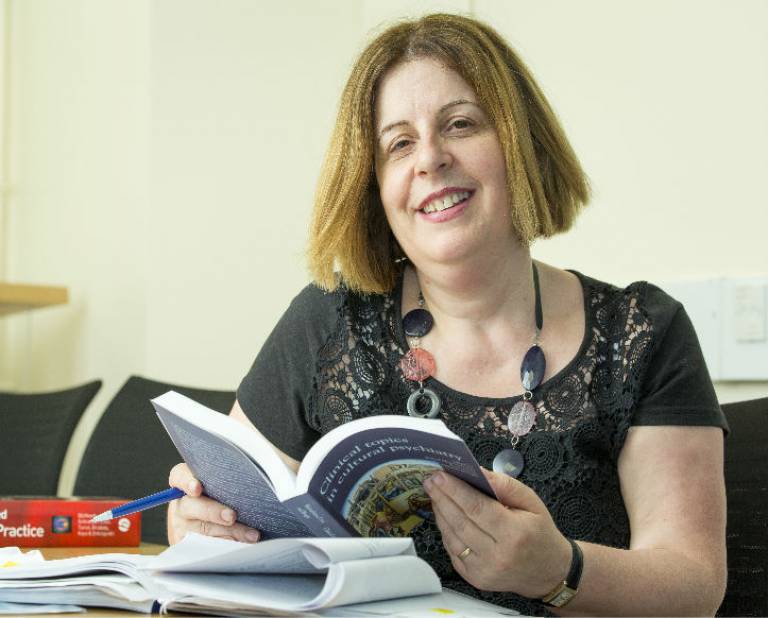Dementia is a really big deal

1 January 1970
While the search for a cure goes on, helping the 850,000 people in the UK who have dementia and their carers manage the condition is vital. That's what Professor Gill Livingston and her team at UCL's Division of Psychiatry aim to do every day.
While the search for a cure goes on, helping the 850,000 people in the UK who have dementia and their carers manage the condition is vital. That's what Professor Gill Livingston and her team at UCL's Division of Psychiatry aim to do every day
"Dementia is a really big deal," she says. "Most of us are probably going to have to face it at some point. There are currently around 540,000 family carers in the UK. We're very practical here. Whether it's a drug or a psychological intervention or a technique, we just want to know: does it work, and if so, how can we help people do it or access it?".
Caring for carers
She points to a study that she carried out on depression among family carers for those who have dementia. At first, Livingston was interested in why they became depressed. But, she says, she realised that she was asking the wrong question.
"It made much more sense to look at the people who weren't getting depressed," she points out. "Looking after someone who you love who deteriorates and possibly doesn't sleep, or accuses you of stealing, over a long period of time, is incredibly hard. So that led us to look at what the people who didn't become depressed were doing."
The study identified that carers who didn't get depressed had certain ways of coping with the stress, such as making sure they had emotional support from others, or accepting the problem rather than expecting a cure.
Livingston and her team used these insights to design a coping strategy that could be taught to carers, and carried out a randomised controlled trial, studying one group of carers who were taught the strategy and one who weren't.
Two years later, the group who had had the training still had a much lower rate of depression than the control group.
The training is a simple, low-cost technique that can be used anywhere - but which has a big impact. "It did change the way that many people coped, and that really did make a difference - not just then but two years later," says Livingston. "People continue to use the strategies we've taught them, and they continue to manage very much better."
Her team is now studying another big problem for carers - sleep. People with dementia tend to have very disturbed sleep due to changes in brain activity, but this could also be affected by the amount they sleep during the day. If they don't sleep at night, their carers don't either.
"We are getting people to wear a gadget called an actigraph - which is a bit like a FitBit - which will track their sleep rhythms," explains Livingston. "We will use the insight we get from that to come up with practical ways of helping, whether it's bringing more light into people's houses or changing the level of activity. We just want the patients and their carers to sleep well at night."
Caring for someone with dementia is hard, she says, and it's one of the biggest challenges that we face as a society.
"If you are looking after someone who is physically ill, many people find that they get emotionally closer," she says. "And that's quite rewarding, even if it's not anything anyone wants in the first place.
"But if you're caring for someone who becomes hostile - which a significant of proportion of dementia patients do - then that's very difficult. You use all your energy but the person is angry with you."
"Most of us grow up thinking that we will have children. Yet nobody ever grows up aspiring to care for a parent or spouse with dementia - but half a million adults already are. We want to take whatever works not just to a hospital bedside, but into people's homes."
 Close
Close


